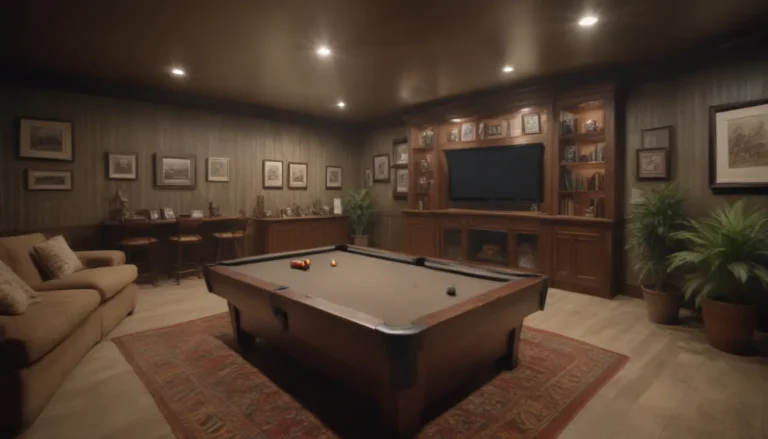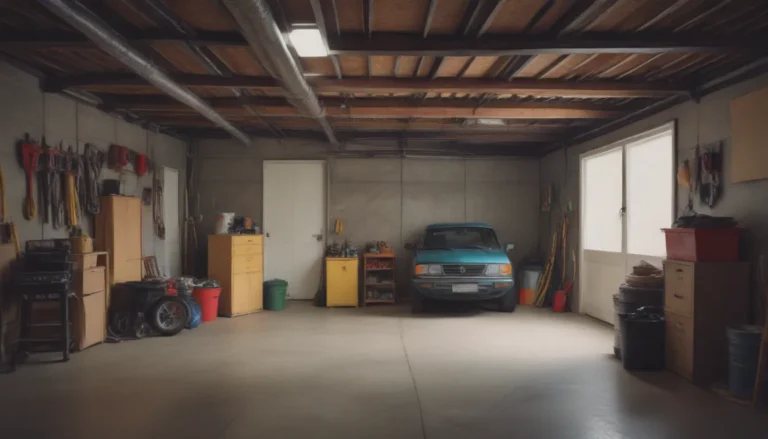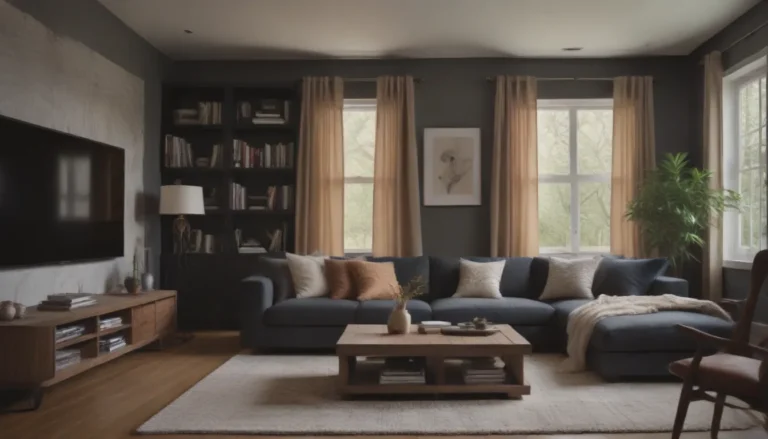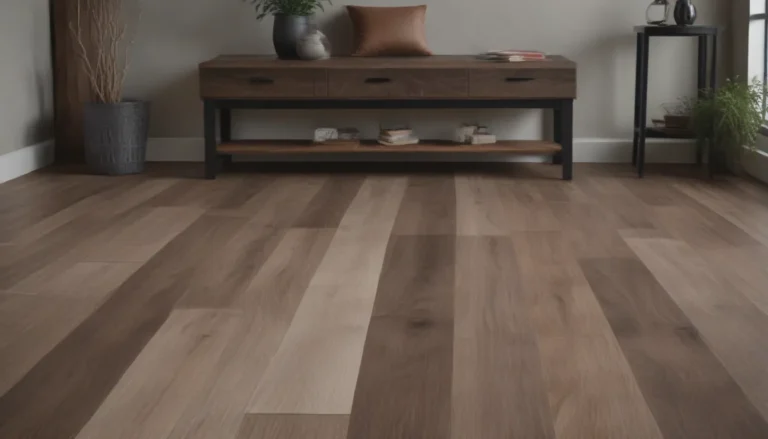The Ultimate Guide to Hardwood Flooring in Kitchens
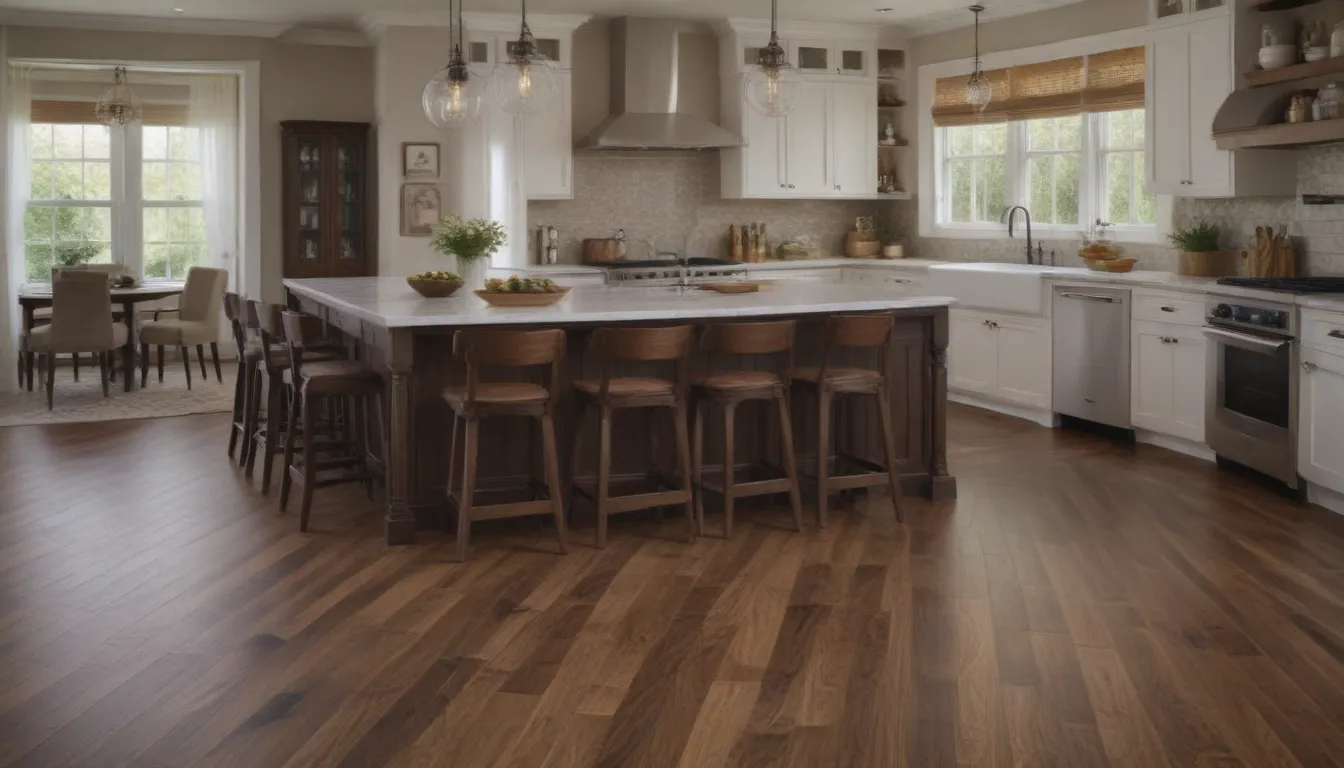
Are you considering hardwood flooring for your kitchen but unsure if it’s the right choice for you? Hardwood is a desirable flooring material that adds value to homes, but it does come with its own set of pros and cons, especially when it comes to wet areas like kitchens. In this in-depth guide, we will explore the various types of hardwood flooring, the cost considerations, maintenance and repair tips, design aspects, installation methods, top brands, comfort and convenience, and even compare hardwood to luxury vinyl flooring.
Pros and Cons of Hardwood Flooring in Kitchens
Hardwood flooring is known for its attractiveness, ability to add value to a home, and for being softer and warmer than tile. However, it is also susceptible to water damage, scratches, and dents, making it a high-maintenance option that can be challenging for DIY installation. It’s essential to weigh these pros and cons carefully before deciding on hardwood for your kitchen.
Pros:
- Attractive surface
- Can be refinished
- Increases home value
- Softer and warmer than tile
Cons:
- Susceptible to water damage, scratches, dents
- High maintenance
- Difficult for DIY installation
- Expensive
Types of Hardwood Flooring
There are several types of hardwood flooring to consider for your kitchen, each with its unique characteristics and installation requirements:
- Solid unfinished planks: Best for kitchens, these planks are installed on-site, tightly butt up together, and sealed to protect against water and staining materials.
- Solid prefinished planks: Manufacturers offer prefinished planks that are factory-sealed, reducing installation work but may have beveled edges that can be problematic in kitchens.
- Engineered planks: Created by bonding a thin veneer of hardwood to plywood or MDF, these prefinished planks often have a “click-lock” system for easy installation as a floating floor.
- Reclaimed planks: Repurposed from demolished buildings, these eco-friendly options can be a unique choice if installed with tight butting and a good sealer.
Hardwood Flooring Cost
The cost of hardwood flooring varies based on the type of wood and quality of the product. Solid hardwoods and engineered hardwoods have comparable costs, with material prices ranging from $4 to $13 per square foot. Professional installation costs between $6 to $12 per square foot, depending on labor standards and job complexity.
Maintenance and Repair
To maintain hardwood flooring in the kitchen, tightly butted boards and proper sealing are essential to prevent moisture penetration. Regular sweeping and periodic mopping with a hardwood cleaner are usually sufficient for maintenance. Scratches and wear can compromise the seal coat, making it crucial to select hardwood that can be refinished to extend its lifespan.
Design
Hardwood flooring is considered a premium material that adds visual warmth and texture to a home. It creates an earthy naturalness that complements various architectural styles and can unify the decor if used throughout the house.
Hardwood Flooring Installation
Solid hardwood planks are usually installed by professionals using tongue-and-groove designs and nailing techniques. Engineered hardwood often utilizes a click-lock system for easier DIY installation as floating floors. Unfinished planks are stained and coated with polyurethane varnish for protection against moisture and stains, requiring periodic refinishing.
Top Brands of Hardwood Flooring
Several reputable flooring brands offer prefinished hardwood products, making it easier to find quality options for your kitchen. Brands like Bruce, Mannington, Bellawood, Carlisle, and Kahrs are known for their durable and stylish hardwood flooring options.
Comfort and Convenience
Hardwood flooring provides a slightly more comfortable surface than stone or ceramic tile, though it is harder than vinyl or cork. It feels warmer underfoot than tile but may be susceptible to dents from dropped items. Consider the comfort and convenience factors when choosing between different flooring materials for your kitchen.
Hardwood vs. Luxury Vinyl Flooring
For kitchens prone to moisture and high traffic, luxury vinyl flooring (LVF) can be a more practical alternative to hardwood. Luxury vinyl is waterproof, scratch-resistant, easy to install, and more affordable than hardwood. Consider luxury vinyl planks if you prioritize durability and ease of maintenance in your kitchen flooring.
Is Hardwood Flooring in the Kitchen Right for You?
Ultimately, the decision to install hardwood flooring in your kitchen boils down to your budget, commitment to maintenance, and personal preferences for a natural flooring material. While hardwood can enhance the aesthetic appeal and value of your home, it may not be the best choice for busy households or those with concerns about moisture and wear. Evaluate your priorities and lifestyle needs to determine if hardwood flooring is the right fit for your kitchen.
In conclusion, hardwood flooring offers numerous benefits and challenges for kitchen applications, and understanding its characteristics and requirements can help you make an informed decision. Whether you opt for solid, engineered, or reclaimed hardwood, proper installation, maintenance, and care are crucial for ensuring the longevity and beauty of your kitchen flooring. Consider all factors, from cost and design to comfort and convenience, to choose the flooring option that best suits your lifestyle and preferences.
For more information on hardwood flooring, maintenance tips, and design ideas, consult reputable sources like the University of Minnesota Extension and Diamond Certified Experts. Make an educated decision about your kitchen flooring to create a functional and visually appealing space that reflects your personal style and enhances your home’s overall value.
